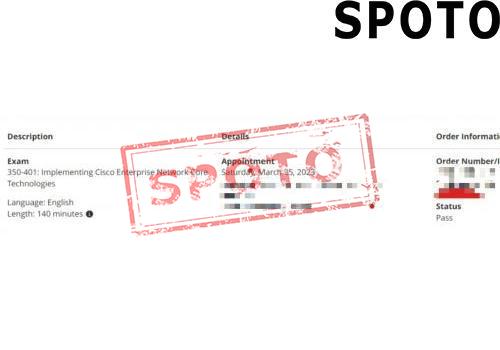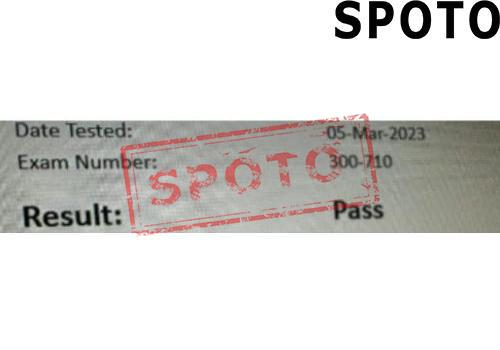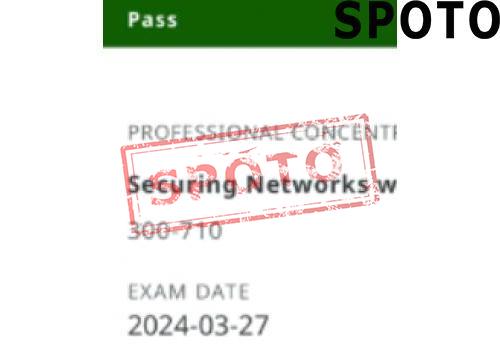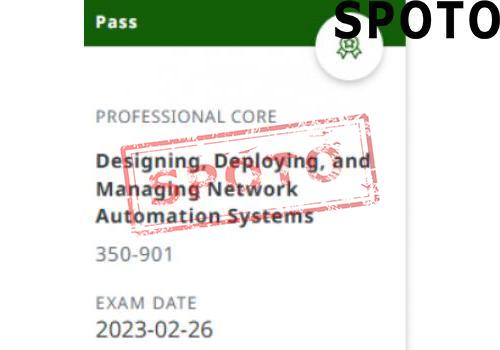
The IT industry is evolving rapidly, and with it, the demand for highly skilled networking professionals is on the rise. If you're looking to boost your salary and unlock better job opportunities, obtaining a Cisco Certified Network Professional (CCNP) certification might be the key to achieving your career goals. Whether you're an aspiring network engineer or an experienced IT professional looking to advance, CCNP certification can open doors to new opportunities, higher earnings, and greater job security.
Why CCNP Matters
1. Industry Recognition and Credibility
Cisco is a global leader in networking technology, and its certifications are highly respected across the IT industry. Earning a CCNP certification demonstrates your expertise in networking concepts, troubleshooting, and advanced networking solutions. Employers recognize CCNP-certified professionals as skilled, knowledgeable, and capable of handling complex networking environments.
2. Increased Salary Potential
One of the most compelling reasons to pursue a CCNP certification is the potential salary increase. According to various industry reports, networking professionals with CCNP certification earn significantly more than their non-certified counterparts. On average, a CCNP-certified network engineer can earn anywhere between $90,000 and $130,000 per year, depending on experience, location, and specialization.
3. Better Job Opportunities
With a CCNP certification, you can qualify for higher-level positions such as:
-
Network Engineer
-
Network Administrator
-
Systems Engineer
-
IT Manager
-
Security Analyst
Many companies prioritize CCNP-certified professionals for these roles, as they require advanced networking knowledge and hands-on skills.
CCNP Certification Tracks
Cisco offers multiple CCNP certification tracks to cater to different IT specializations. Some of the most popular ones include:
-
CCNP Enterprise: Focuses on networking technologies such as routing, switching, wireless, and automation.
-
CCNP Security: Concentrates on network security, firewall policies, and VPN solutions.
-
CCNP Data Center: Covers data center networking technologies, including automation and storage networking.
-
CCNP Collaboration: Specializes in voice, video, and communication technologies.
-
CCNP Service Provider: Targets networking professionals working in service provider environments.
Choosing the right CCNP track depends on your career goals and areas of interest.
How to Get CCNP Certified
1. Prerequisites
Unlike previous Cisco certification structures, CCNP no longer requires you to first obtain a CCNA certification. However, having a solid networking foundation and relevant experience is beneficial.
2. Exam Structure
To earn a CCNP certification, you must pass two exams:
-
A core exam: This covers fundamental topics within your chosen track.
-
A concentration exam: This allows you to specialize in a specific area of networking within that track.
For example, if you're pursuing CCNP Enterprise, you would take:
-
Core Exam: ENCOR 350-401
-
Concentration Exam: Options include ENARSI 300-410 (Advanced Routing and Services), ENSDWI 300-415 (SD-WAN), etc.
3. Training and Study Resources
To prepare for the CCNP exams, you can use a combination of study materials, including:
-
Official Cisco training courses
-
Practice exams from providers like SPOTO
-
Cisco Press books and study guides
-
Online networking forums and study groups
-
Hands-on lab experience using Cisco Packet Tracer or real networking equipment
Benefits Beyond Salary
While salary and job prospects are significant motivators, CCNP certification also offers additional benefits:
-
Enhanced Skills: You'll gain in-depth knowledge and hands-on experience, making you a more capable networking professional.
-
Career Flexibility: A CCNP certification opens doors to various industries, from healthcare to finance, as every organization relies on networking.
-
Job Security: With businesses increasingly dependent on secure and efficient networks, skilled networking professionals are always in demand.
-
Pathway to Advanced Certifications: CCNP serves as a stepping stone to expert-level certifications like CCIE (Cisco Certified Internetwork Expert), further solidifying your career growth.
Conclusion
If you want a higher salary, better job prospects, and a more secure future in IT networking, pursuing a CCNP certification is a smart investment. With Cisco's industry-recognized credentials, you can position yourself as a top-tier networking professional, gain access to lucrative job opportunities, and future-proof your career. Start your CCNP journey today and take control of your professional growth!










